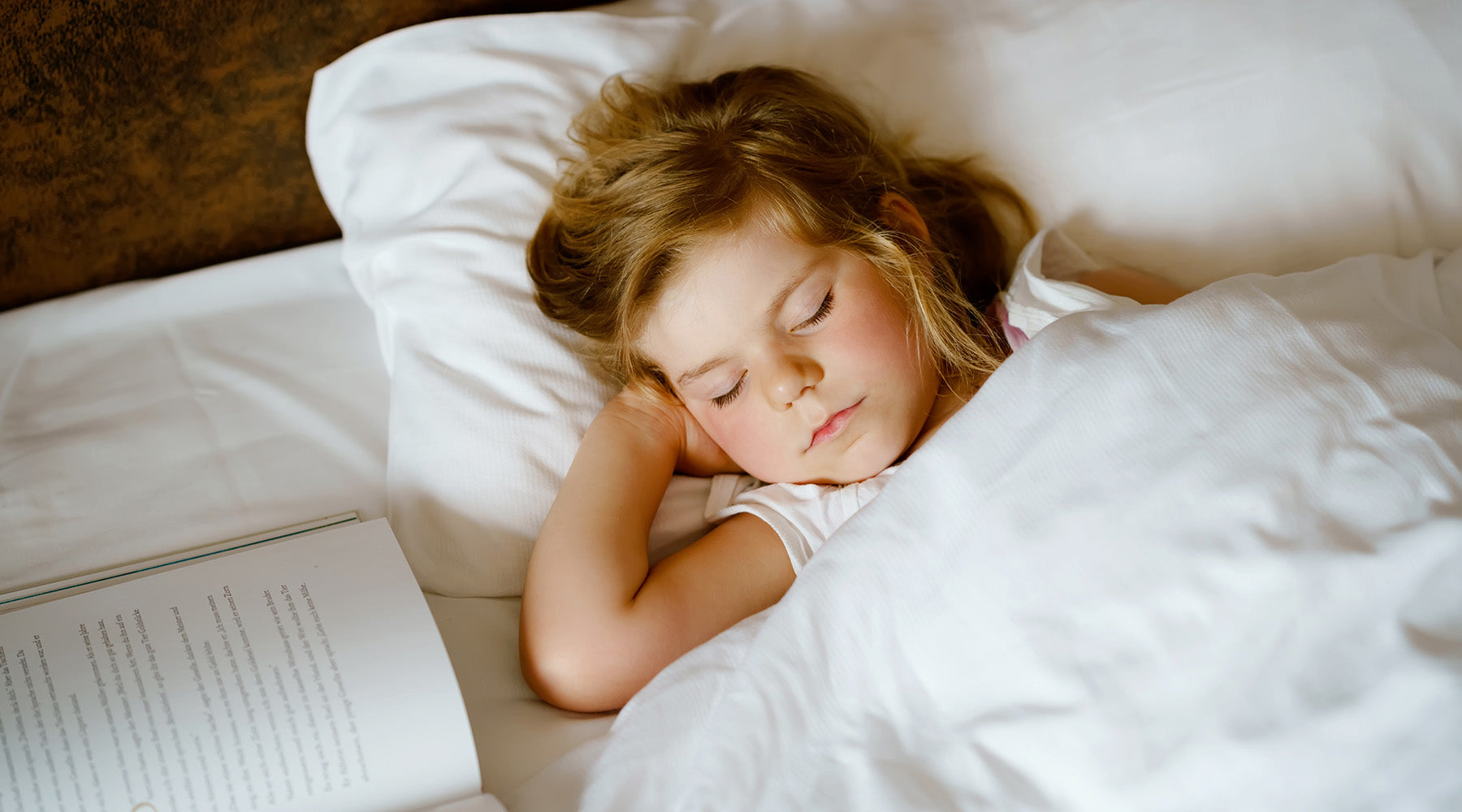
World Sleep Day – How the World Sleeps
The World
But how does the world actually sleep? In this article, we take a look at sleeping habits around the world, highlight interesting differences between cultures and countries, and explain why good sleep is so important.
Table of contents
- World Sleep Day
- This is how the world sleeps
- Sleep duration
- Sleeping times
- Sleep quality
- Sleeping habits and rituals
- Why we should prioritize our sleep
- Conclusion
1.) World Sleep Day
Sleep is a fundamental part of our lives and plays an indispensable role in our physical and mental health. Without sufficient sleep, we are less productive, our concentration decreases, our immune system is weaker, and our emotional balance is faltering. Yet sleep is often taken for granted or even seen as a waste of time, replaced by work, leisure activities, or digital distractions. This is where the World
The World
Everyone knows the feeling when, after a long night, a lack of sleep leaves its mark the next day. But lack of sleep doesn't just affect our well-being in the short term – in the long run, it can lead to serious health problems. That's why it's especially important to make sleep a priority, as the theme of this year's World
2.) This is how the world sleeps
Sleep habits vary greatly between countries and cultures. Sleep duration, sleep times, and even sleep quality differ depending on lifestyle, climate, working hours, and social norms. In recent years, technological developments and digitalization have also had a major impact on sleep behavior. Let's take a closer look at sleep habits around the world.
2.1 Sleep duration
The ideal sleep duration The recommended sleep duration for adults is around seven to nine hours per night. However, the reality is often different. There are differences in average sleep duration worldwide:
- United States: In the US, people sleep an average of 6.9 hours per night, which is less than the recommended amount of sleep. Factors such as stressful work schedules and excessive Media consumption are often responsible for this.
- Germany: Compared to other countries, Germans have, depending on Gender a relatively high amount of sleep. On average, Germans sleep about 7.1 hours per night, although women tend to get slightly more sleep than men.
- Japan: In Japan, people sleep an average of only about six hours per night. The high work pressure and long commute times contribute to the fact that Japanese people often get little sleep.
- Southern Europe: In countries like Spain or Italy, the nap, also called "siesta," is a long-standing tradition. Nevertheless, many Southern Europeans only sleep about seven hours a night, due to later working hours and the cultural preference for late dinners.
2.2 Sleep times
Sleep patterns vary around the world, not only in terms of sleep duration but also in the time people go to bed and wake up. These differences are often influenced by culture, lifestyle habits, and social norms.

In most western countries, such as the USA or Germany, it is common to go to bed around 11 p.m. or even later. The evening is often spent with leisure activities, television programs, or digital media, which leads to many people going to bed late.
In Scandinavian countries such as Sweden, Norway and Finland People tend to have earlier sleeping habits. Especially in Norway and Sweden, it is common for people to turn off the lights around 10 p.m. and try to go to bed early. The long summer nights and winter darkness in these countries affect sleeping habits: During the summer months, when the days are very long, it can be difficult for many to get a good night's sleep. Sleep rhythm to find, while the dark Winter months provide a natural invitation to earlier bedtimes.
In Southern Europe, such as Spain, Italy or South America, it is not unusual for people to start their days later and for the nights to become correspondingly longer. In these cultures, the tradition of the midday nap, the "siesta", has a major influence on the entire day. In countries like Spain or Mexico, the afternoon is often used for a longer break, which means people go to bed later and don't fall asleep until around midnight or later. In Spain, many restaurants and shops do not open until after 10 p.m., and social life takes place in the late hours.
Late working hours in many southern European countries pose an additional challenge. In many cases, the workday extends well into the evening, further shifting people's sleep patterns. These late bedtimes often negatively impact sleep quality, as people get less sleep and their sleep phases are shorter.
2.3 Sleep quality
Sleep quality is just as important as sleep duration, and it varies greatly by country and cultural habits. In many industrialized countries, people suffer from Sleep disorderscaused by factors such as stress, unfavorable sleeping environments, the use of electronic devices before bedtime or work-related pressure.
- North America: In the USA and Canada, many people suffer from sleep disorders and insomniaA study from the USA showed that about 35% of adults occasionally or regularly have difficulty getting enough sleep.A hectic lifestyle, often associated with long working hours and a lack of free time, is leading more and more people to sacrifice their sleep to balance work and personal obligations. In addition, electronic devices in the bedroom are commonplace in many American households, which can significantly impact sleep quality.
- EuropeSleep is also a growing problem in many European countries. Sleep disorders are particularly widespread in Great Britain and France. In Great Britain, studies show that around 50% of people occasionally have problems sleeping, either due to insomnia or poor sleep quality. Sleeping habitsIn France, the phenomenon of insomnia is also widespread, with approximately 30% of the population regularly suffering from sleep problems. In these countries, work-related stress and social pressure often negatively impact sleep quality.
- Asia: In Japan, South Korea, and China, many people suffer from poor sleep quality, mainly due to job-related stress and mental strain. In Japan, the "karoshi" culture - death from overwork - is a serious problem that often leads to sleep deprivation. High professional pressure and long working hours mean that many Japanese people sleep only a few hours, which puts their physical and mental health at risk. In South Korea and China, the pressure to excel in school and at work is also so great that sleep is often viewed as less important. Many of these countries have initiatives to combat sleep deprivation and sleep disorders, but the societal expectation to always be productive poses a major challenge.
2.4 Sleeping habits and rituals
Sleep plays an important role in different cultures and is often characterized by specific rituals and habits that are intended to help improve sleep quality and promote a healthy night's rest.
- India: In India, sleep is strongly linked to spiritual practices such as meditation, yoga and breathing exercises Many Indians incorporate these practices into their sleep routine to relax and promote restful sleep. Sleep plays a particularly important role in spiritual and religious traditions. For many people, sleep is a moment of spiritual renewal, supported by meditation or the recitation of mantras. These rituals help calm the mind and improve sleep quality.
- Scandinavia: In the Nordic countries, the concept of hygge (a cozy, relaxed way of life) is very popular, and it also influences sleeping habits. Especially in Norway and Sweden, a lot of emphasis is placed on a quiet and dark Sleeping environment It is recommended to keep the bedroom as free of electronic devices as possible and to create a calming atmosphere with dim lighting. Scandinavian culture also has a strong connection to nature and outdoor activities, which contributes to healthy sleep. People in these countries often go to bed earlier and wake up early to respect the natural rhythm of the seasons.
- Africa: In many African cultures, sleep is not just an individual matter but plays a significant social role. In many rural areas, especially in West Africa, there are communal dormitories where family members or entire village communities sleep together.This communal way of sleeping not only strengthens social cohesion but is also seen as a way to ensure the safety and well-being of the community. In some regions, sleep is also considered a spiritual practice in which the sharing of dreams and experiences plays an important role.
- Arab World: In many Arab countries, sleep is also considered a sacred time that is in harmony with the body's natural rhythms. Traditional rituals, such as drinking warm tea or listening to soothing Music, are often part of the evening preparation for sleep. In many Arab cultures, "retirement" is a time of reflection and inner peace, serving to prepare both physically and mentally for the new day.
3.) Why we should prioritize our sleep
The motto of this year’s World
Improved mental health: Sleep is essential for cognitive performance, memory and concentration. Lack of sleep impairs thinking and hinders learning. A good night's sleep promotes mental clarity and protects against cognitive impairment.
Physical health: Sleep supports the immune system and reduces the risk of chronic diseases such as cardiovascular disease and diabetes. While we sleep, body cells regenerate and regulate important hormones. Sleep deprivation, on the other hand, can lead to weight gain and an increased risk of disease.
Emotional well-being: Good sleep helps reduce stress and maintain emotional balance. Lack of sleep promotes the release of stress hormones and can lead to anxiety and Depression People who get enough sleep remain more emotionally stable and can better cope with challenges.
By making sleep a priority, we improve our overall quality of life. We are fitter, more creative, more productive, and better able to maintain our social relationships. Sleep is therefore not just a matter of recovery, but a crucial factor for long-term well-being and health.
4.) Conclusion
- Sleep is crucial for health and well-being: The World
Sleep Day reminds us how important sleep is for our mental, physical, and emotional health. Adequate, high-quality sleep is essential for improving our quality of life and maintaining long-term health. - Sleeping habits vary worldwide: Sleep duration, sleep times, and sleep quality vary greatly between countries and cultures. Factors such as work schedules, social norms, and traditional rituals influence sleep behavior. In countries like Japan and the USA, many people suffer from sleep deprivation, while in Southern Europe, later bedtimes are common.
- Sleep quality is just as important as sleep duration: Even if we get enough sleep, poor sleep quality caused by stress, electronic devices and unfavorable sleeping environments can affect our health.Especially in Western and Asian countries, there is an increasing proportion of people suffering from sleep disorders.
- Sleeping habits as a cultural phenomenon: Different cultures have their own sleep rituals that positively influence sleep. In India, meditation and yoga play a role, while in Scandinavia, a quiet and dark sleeping environment is conducive. In many African and Arabic cultures, sleep also has social and spiritual significance.
- Make sleep a priority: The motto of the World
Sleep Day encourages us to make sleep a priority. By considering sleep as a vital resource, we can maintain and improve our mental health, physical fitness, and emotional balance over the long term.


Leave a comment
This site is protected by hCaptcha and the hCaptcha Privacy Policy and Terms of Service apply.